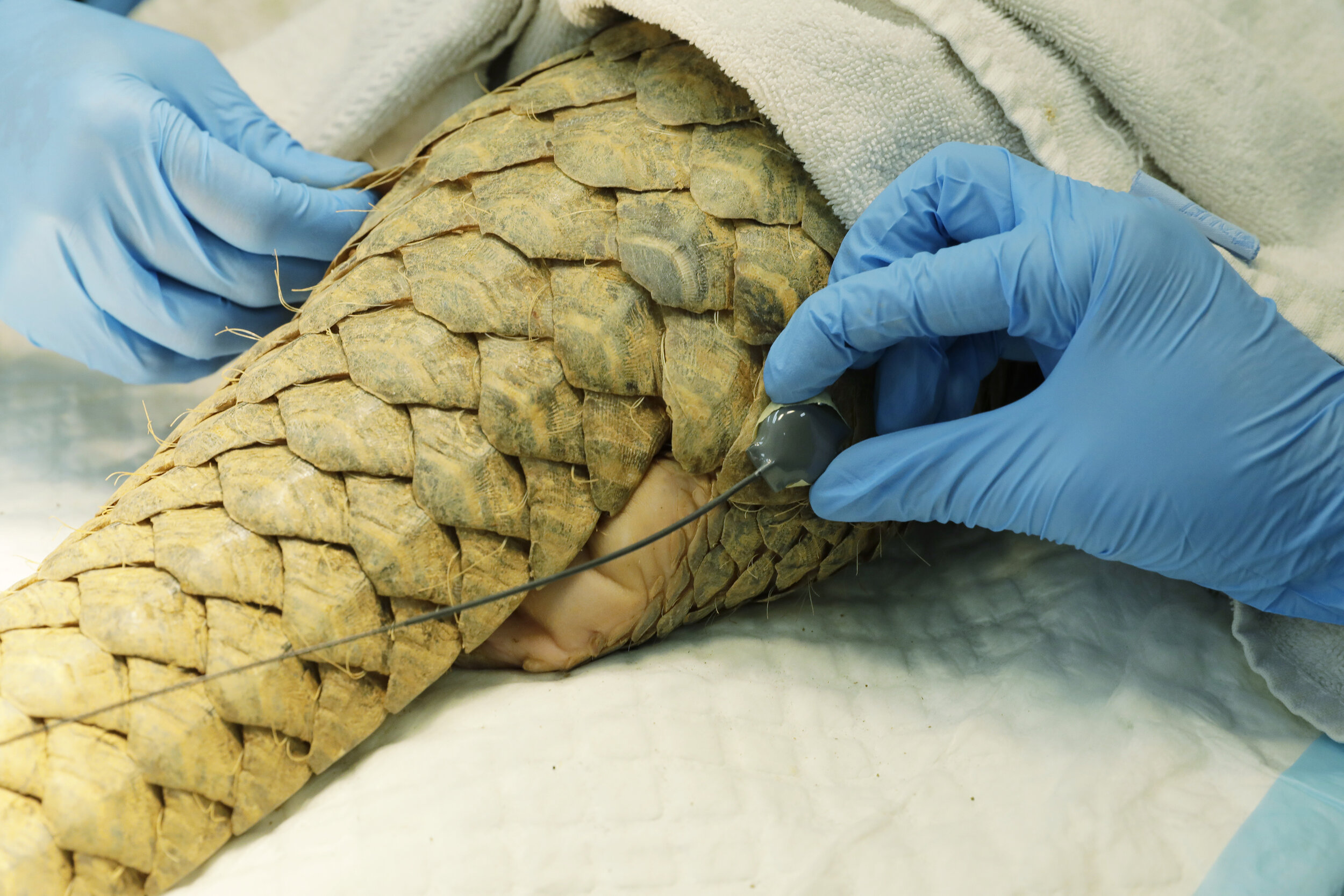Singapore’s Research and Rescue Conservation Efforts for the Sunda Pangolin
Blueprint
ASSESS
Sunda Pangolins are native to southeast Asia but are experiencing severe threats throughout most of their range. They have been assessed as Critically Endangered since 2014 on the IUCN Red List of Threatened Species. Mandai Nature, together with Wildlife Reserves Singapore (WRS), actively contributes to in situ and ex situ conservation efforts for this species. In 2013, along with the IUCN SSC Pangolin Specialist Group (PSG), they hosted the world’s first pangolin conference. Attended by 40 conservationists from 14 countries, it was determined that all eight species of pangolin, including the Sunda Pangolin, are declining. It was agreed that all range states and responsible stakeholders need to start taking conservation actions for all pangolin species.
In the following year, the Singapore Pangolin Working Group (SPWG) came together with stakeholders from government agencies, conservation NGOs, private entities, and academic institutions in Singapore. The aim of the group, chaired by Mandai Nature, is to increase awareness and drive the conservation and protection of the Sunda Pangolin.
PLAN
In 2017, a Regional Conservation Action Planning Workshop, followed by a three-day National Action Planning Workshop for Singapore, was hosted at Singapore Zoo to develop a comprehensive plan for Sunda Pangolins in Singapore. This was a collaborative effort between Mandai Nature, PSG, Asian Species Action Partnership (ASAP), IUCN SSC Conservation Planning Specialist Group (CPSG), and Singapore National Parks Board, with more than 50 conservationists, researchers, and wildlife authorities from 16 countries attending.
Following these meetings, the Sunda Pangolin National Conservation Strategy and Action Plan for Singapore was published in 2018. This ambitious plan is a 50-year strategy to be coordinated by the SPWG and has five overarching goals: 1) gather and share information; 2) ensure habitat protection, restoration, and connectivity; 3) establish wildlife-conscious urban planning; 4) develop rescue, rehabilitation, and release strategies with resources to implement them; and 5) enhance collaborations, communications, and awareness.
In 2019, Mandai Nature, CPSG, PSG, and the National Science Museum, Thailand, organised an Ex Situ Conservation Needs Assessment and Planning Workshop for the Sunda Pangolin in Thailand. In this workshop, participants reviewed the status of the ex situ population and facilities, and identified seven potential conservation roles for the Sunda Pangolins held in ex situ situations, using the decision-making process outlined in the IUCN SSC Guidelines on the Use of Ex Situ Management for Species Conservation (2014).
ACT
Mandai’s zoological parks are designated centres for rescued wildlife, and its animal hospitals receive an average of 20 locally-rescued wild pangolins per year. The veterinary team provides the necessary assessment, treatment, and rehabilitation in preparation for release back to the wild. Prior to the release, pangolins are microchipped and externally-tagged to allow for data collection if re-encountered.
As part of the plan’s conservation efforts, Mandai Nature funded research on the ecology of the Sunda Pangolin in Singapore. Critical information was gathered on its urban ecology through faecal analysis, genetics, dispersal movement, home range, and habitat selection for both wild, and rescued and released Sunda Pangolins. Nine pangolins were also radio-tracked, which complemented the existing camera trap research project by the National Parks Board Singapore for population estimation. By tracking female pangolins, valuable data on habitat selection for breeding and maternal care in the wild were obtained.
This work also helped to enhance the understanding of the species’ potential interaction with roads, and provided insights into management options to prevent or minimise pangolin roadkill incidences. Differences in dispersal and home range size between the sexes is an important consideration in this mitigation. Connectivity between pangolin habitats, free of road hazards, is important for long-term population viability.
Mandai also launched a “#Together for Wildlife” campaign to build awareness of Singapore’s pangolins and engage communities, businesses, and individuals in pangolin conservation. They developed education outreach programmes for schools and the adult community, as well as showcase pangolin conservation at national events such as the Festival of Biodiversity and the Istana Open House.
Results
To date, Mandai’s animal hospital has provided treatment and rehabilitation to more than 120 injured and rescued pangolins, enabling the release of most of them back to the wild. A notable example is the first successful hand rearing of a stranded 1.5-month-old baby pangolin named Sandshrew, that was releasable after two years. Collaborative research on the pangolin’s diet facilitated Mandai’s zoological park in developing a captive diet with a nutritional value similar to their wild ant and termite diet.
The Singapore Night Safari (one of the zoological parks at Mandai) is the first facility in the world to successfully breed and exhibit pangolins, with three successful births at the park. The exhibit serves to raise awareness of the species and educate the public on the threats pangolins face globally. The first Ex Situ Significant Species Management Programme for the Sunda Pangolin was established in January 2021, with an animal caretaker from the Night Safari team appointed as the Programme Coordinator. A mid-term workplan for the programme is currently under development which will see strong links to in situ conservation efforts.
Visual & Audio References
©Mandai Nature
Collaborations
Major
Partners
Mandai Nature
Wildlife Reserves Singapore
Singapore National Parks Board (NParks)
IUCN SSC Pangolin Specialist Group
ACRES Singapore
Additional
Contributors
Asian Species Action Partnership (ASAP); Conservation Planning Specialist Group; Conservation International Singapore; National University of Singapore, Lee Kong Chian; Natural History Museum (Thailand); Nature Society Singapore; The Pangolin Story; Singapore Pangolin Working Group; Strix Wildlife Consultancy; Wildlife Conservation Society; Taipei Zoo; Save Vietnam’s Wildlife
Additional Resources
Content Updated as of 9/1/2020






